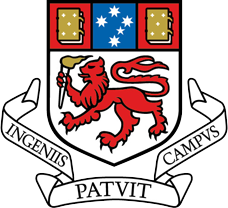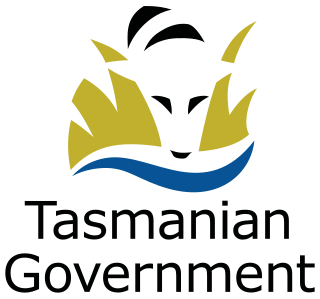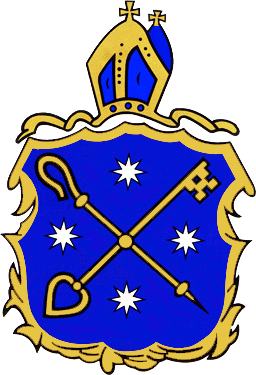Related Research Articles

Andrew Inglis Clark was an Australian founding father and co-author of the Australian Constitution; he was also an engineer, barrister, politician, electoral reformer and jurist. He initially qualified as an engineer, but he re-trained as a barrister to effectively fight for social causes which deeply concerned him. After a long political career, mostly spent as Attorney-General and briefly as Opposition Leader, he was appointed a Senior Justice of the Supreme Court of Tasmania. Despite being acknowledged as the leading expert on the Australian Constitution, he was never appointed to the High Court of Australia.
The history of Tasmania begins at the end of the Last Glacial Period when it is believed that the island was joined to the Australian mainland. Little is known of the human history of the island until the British colonisation of Tasmania in the 19th century.
A royal commission is a major ad-hoc formal public inquiry into a defined issue in some monarchies. They have been held in the United Kingdom, Australia, Canada, New Zealand, Norway, Malaysia, Mauritius and Saudi Arabia. In republics an equivalent entity may be termed a commission of inquiry.
Sir Ronald Darling Wilson, was a distinguished Australian lawyer, judge and social activist serving on the High Court of Australia between 1979 and 1989 and as the President of the Human Rights and Equal Opportunity Commission between 1990 and 1997.

The University of Tasmania (UTAS) is a public research university, primarily located in Tasmania, Australia. Founded in 1890, it is Australia's fourth oldest university. Christ College, one of the university's residential colleges, first proposed in 1840 in Lieutenant-Governor Sir John Franklin's Legislative Council, was modelled on the Oxford and Cambridge colleges, and was founded in 1846, making it the oldest tertiary institution in the country. The university is a sandstone university, a member of the international Association of Commonwealth Universities, and the Association of Southeast Asian Institutions of Higher Learning.
A public inquiry, also known as a tribunal of inquiry, government inquiry, or simply inquiry, is an official review of events or actions ordered by a government body. In many common law countries, such as the United Kingdom, Ireland, Australia and Canada, such an inquiry differs from a royal commission in that a public inquiry accepts evidence and conducts its hearings in a more public forum and focuses on a more specific occurrence. Interested members of the public and organisations may make (written) evidential submissions, as is the case with most inquiries, and also listen to oral evidence given by other parties.

Law enforcement in Australia is one of the three major components of the country's justice system, along with courts and corrections. Law enforcement officers are employed by all three levels of government – federal, state/territory, and local.

The Tasmanian Government or the Government of Tasmania is the executive branch of the Australian state of Tasmania. The leader of the party or coalition with the confidence of the House of Assembly, the lower house of the Parliament of Tasmania, is invited by the governor of Tasmania to form the executive. The governor appoints the premier of Tasmania.
The Inter-State Commission, or Interstate Commission, is a defunct constitutional body under Australian law. The envisaged chief functions of the Inter-State Commission were to administer and adjudicate matters relating to interstate trade. The Commission was established in 1912, became dormant in 1920, was abolished in 1950, re-established in 1983, and absorbed into the Industry Commission in 1989.

St Patrick's College, sometimes referred to as St Pat's, Paddy's or SPC, is an independent Catholic secondary day and boarding school for boys, located in central Ballarat, Victoria, Australia. The school was founded by the Congregation of Christian Brothers in 1893, who continue to run the school through Edmund Rice Education Australia. The school provides education for boys from Year 7 to Year 12, with an emphasis on academic and sporting programs.
Mount Dundas is a mountain located in the West Coast region of Tasmania, Australia. The mountain is situated at the north west edge of the West Coast Range.

The Anglican Diocese of Tasmania includes the entire Tasmanian state of Australia and is an extraprovincial diocese of the Anglican Church of Australia.
Swimming Australia is the peak governing body for competitive swimming in Australia. The body has approximately 100,000 registered members nationally in 1100 clubs across the country, which includes swimmers, coaches, officials, administrators and volunteers. The body oversees the management and development of the sport from the national team at the elite level, the conduct of national and international events, through to grass roots participation.
The Royal Commission into Institutional Responses to Child Sexual Abuse was a royal commission announced in November 2012 and established in 2013 by the Australian government pursuant to the Royal Commissions Act 1902 to inquire into and report upon responses by institutions to instances and allegations of child sexual abuse in Australia. The establishment of the commission followed revelations of child abusers being moved from place to place instead of their abuse and crimes being reported. There were also revelations that adults failed to try to stop further acts of child abuse. The commission examined the history of abuse in educational institutions, religious groups, sporting organisations, state institutions and youth organisations. The final report of the commission was made public on 15 December 2017.
References
- ↑ "Main Line Railway" (PDF). Parliament of Tasmania . Retrieved 21 May 2024.
- 1 2 Frijlink, S.; Lyle, J. M. (2013). "FINAL REPORT Establishing historical baselines for key recreational and commercial fish stocks in Tasmania" (PDF). Institute for Marine and Antarctic Studies . Retrieved 13 May 2023.
- ↑ Ely, Richard. "Protecting Commonwealth from Church: Clark's 'Denominational Education', and Beyond" (PDF). Andrew Inglis Clark. University of Tasmania . Retrieved 13 May 2023.
- ↑ "Introduction of fluoride". National Museum Australia . Retrieved 13 May 2023.